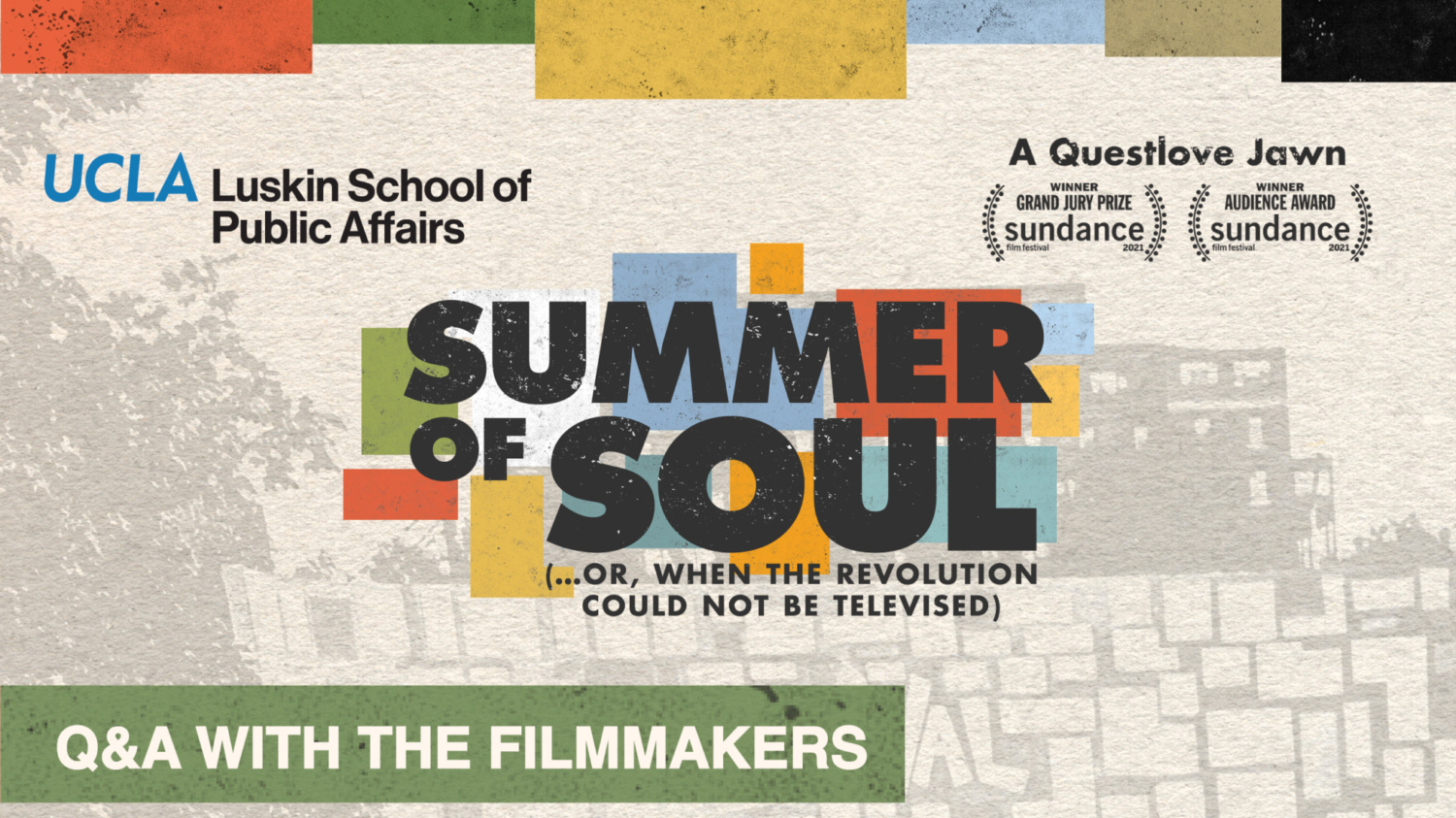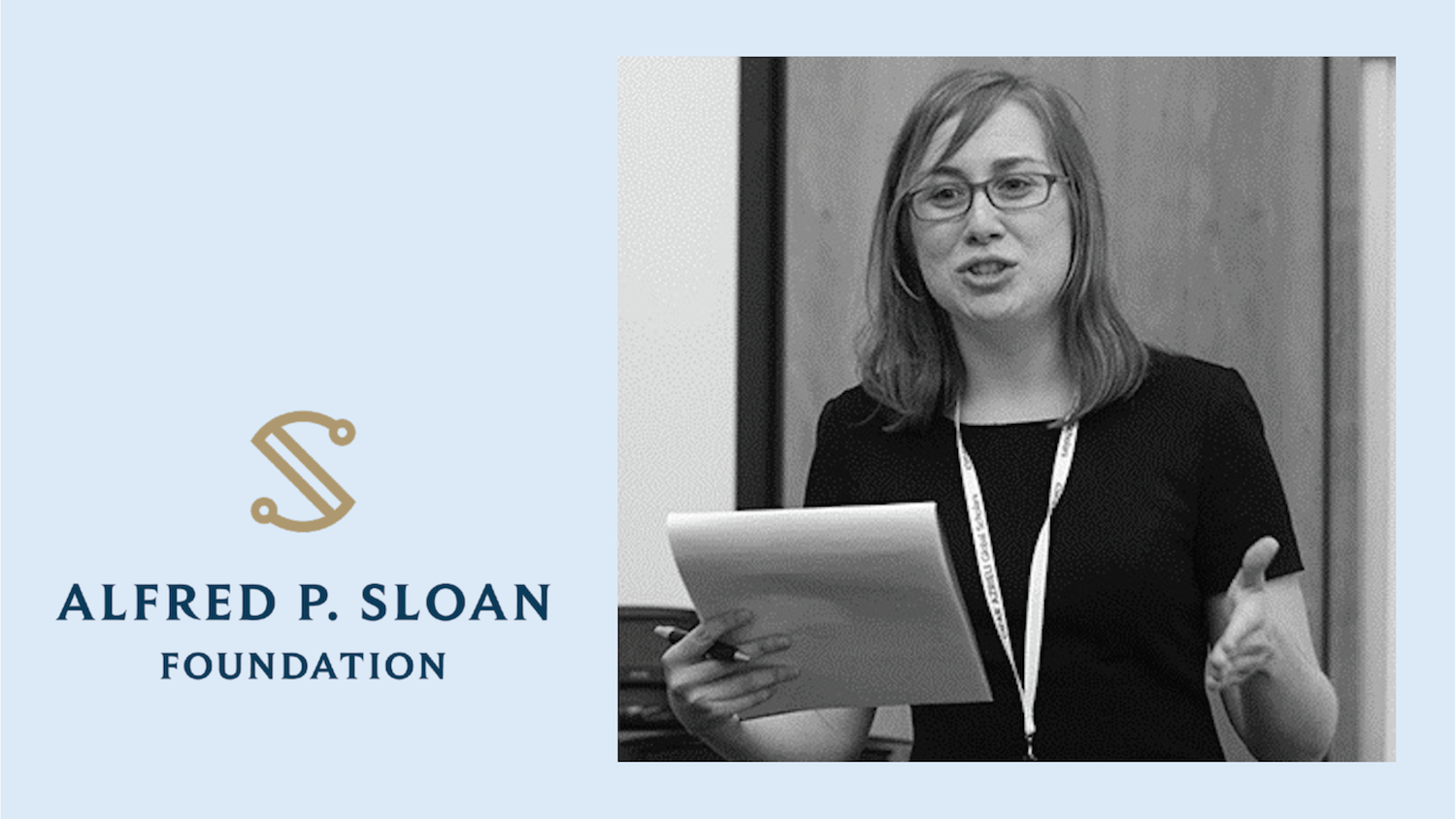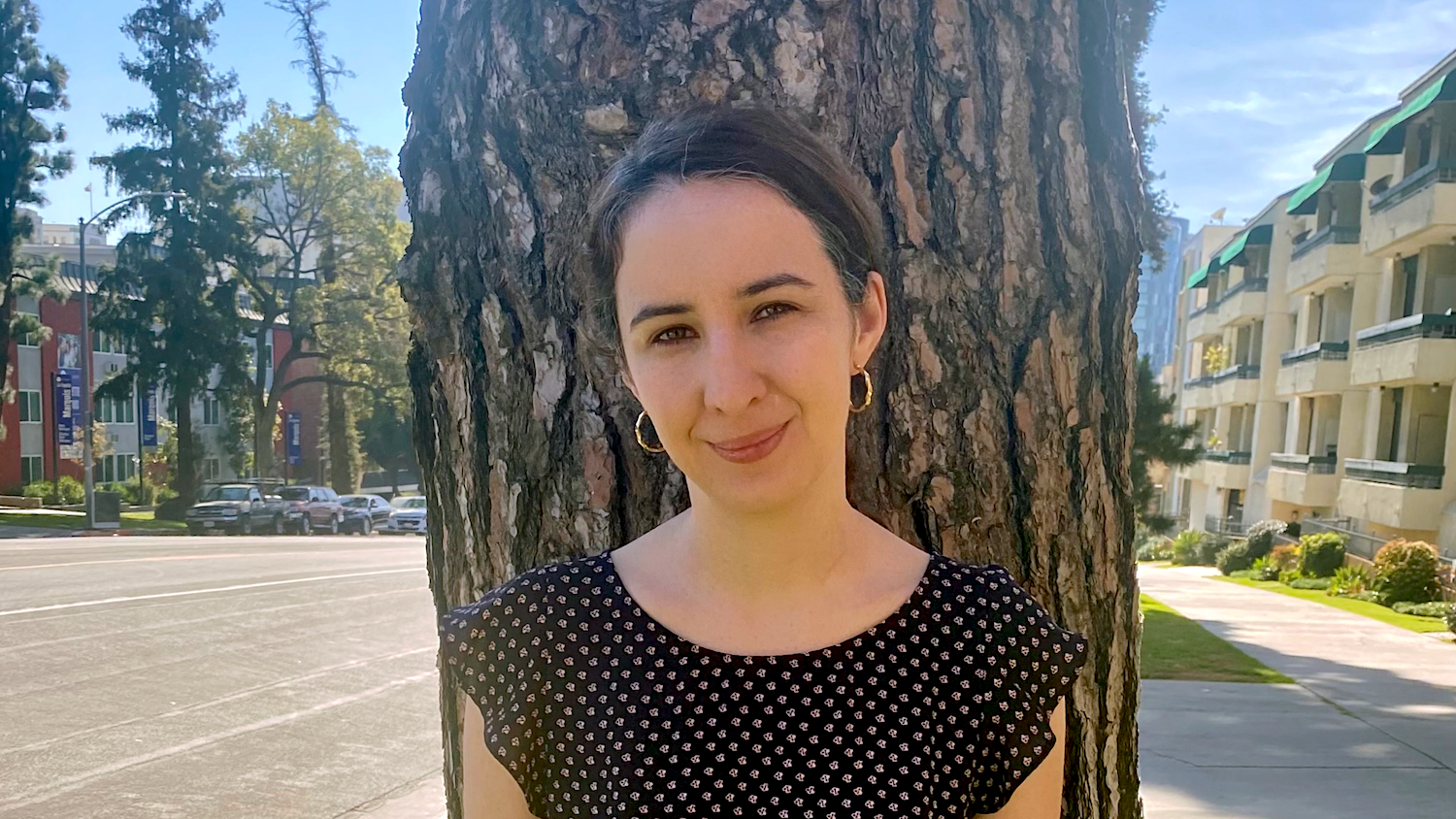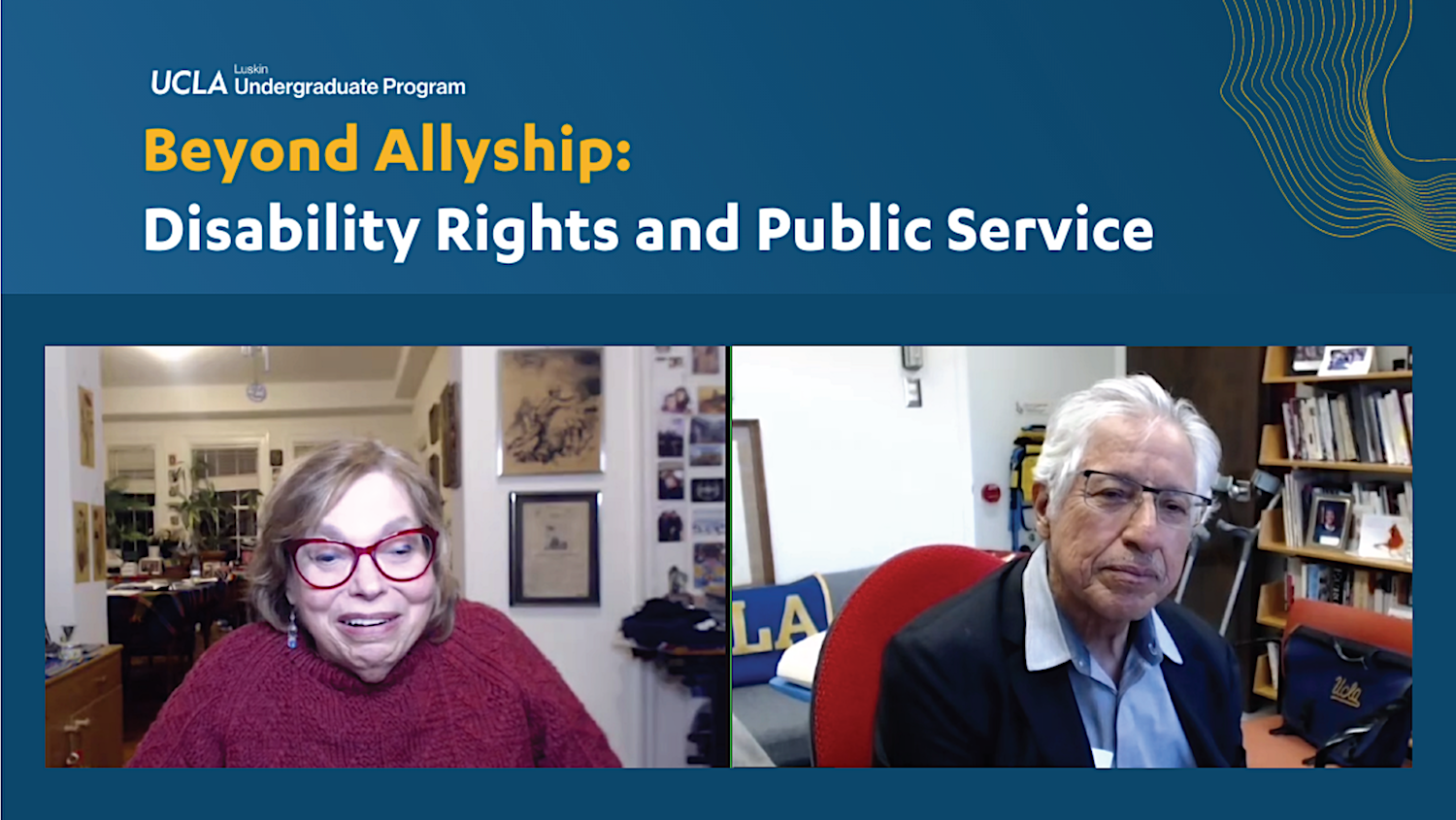Luskin Summit Takes On Global Climate Justice
Assistant Professor of Urban Planning Kian Goh led a dialogue about equity, grassroots activism and climate change in the Mar. 2 Luskin Summit webinar “Cities and Global Climate Justice.” Goh, who serves as associate faculty director of the UCLA Luskin Institute on Inequality and Democracy, started the conversation by discussing community-based activism in Jakarta, Indonesia. Eric Chu of UC Davis spoke about competing visions of the urban built environment and the power of activist groups to reimagine what their communities will look like through a lens of justice and equity. Hugo Sarmiento of Columbia University noted that, in Colombia, the main drivers of risk are social, economic, political and oftentimes racial exclusion from the housing market. “Residents have already been displaced by war and conflict, and now they are being displaced by the city,” he explained. Idowu “Jola” Ajibade of Portland State University said issues such as environmental degradation, homelessness, joblessness, and lack of access to sanitation and health care affect the way that climate change is perceived in the Global South, where many communities are already marginalized. “The ways in which people are challenging the system also helps us think about how we might transform the urban society more equitably,” Ajibade said. Kasia Paprocki of the London School of Economics and Political Science discussed how the transition from a rural to urban economy is seen as a necessary and even positive development, which dismisses the experiences of many of the individuals being displaced. Michael Fleming of the UCLA Luskin Board of Advisors was on hand to welcome the panelists.
Long-Forgotten Footage Sparks Dialogue on Black Music as History
Two members of the creative team behind the award-winning documentary “Summer of Soul (… Or, When the Revolution Could Not Be Televised)” shared personal reflections about their role in bringing long-forgotten footage of 1969’s Harlem Cultural Festival to light during a Feb. 28 online dialogue with a UCLA audience. Joseph Patel, one of the film’s producers, and art director consultant Frank William Miller Jr. said they were floored when they first learned about the festival, which brought legends of musical history to a Harlem park half a century ago. Over six weekends, a series of free events showcased B.B. King, Mahalia Jackson alongside Mavis Staples, Nina Simone, Sly & the Family Stone, Gladys Knight & the Pips, The 5th Dimension and a 19-year-old Stevie Wonder, among many others. That so few remembered this cultural phenomenon was a sign of Black erasure, Patel said. He said the film’s director, Ahmir “Questlove” Thompson, spoke about how “Black history is often not regarded as part of the American history and why that was important to rectify with this film. … We didn’t want to just do a concert film, we wanted to tell a larger story.” Assistant Professor Lee Ann S. Wang and doctoral student Taylor Reed of UCLA Luskin Social Welfare moderated the conversation, which was also sponsored by the School’s urban planning, public policy and undergraduate programs, the Diversity, Disparities and Difference (D3) Initiative, and Social Welfare’s Diversity, Equity and Inclusion committee. “Summer of Soul” has won several awards since its premier at the 2021 Sundance Film Festival and is nominated for this year’s Academy Award for best documentary feature.
Luskin Summit Draws Inspiration from Europe to Combat Homelessness
A panel of experts from around the world joined the Feb. 23 Luskin Summit webinar “International Models of Social Housing: Lessons for California” to brainstorm strategies to address housing affordability and homelessness. California Assembly member Alex Lee welcomed attendees and kicked off the event by noting that nearly half of California residents qualify as rent-burdened as a result of the affordable housing crisis. Associate Professor of Urban Planning and Public Policy Paavo Monkkonen led the conversation about the successes of social housing and urban planning in Europe that could be adopted in California. Researcher Kath Scanlon from the London School of Economics noted that the goal of social housing is to solve housing affordability, but a successful social housing program will start by alleviating some of the pressure in the housing market. “For a variety of reasons, not everyone is going to be able to house themselves in the way we think they should be housed,” Scanlon said. “If California wants to step up, it will not be straightforward, but you have to start somewhere.” Helsinki’s housing program manager, Hanna Dhalmann, discussed Finland’s largest and most successful municipal housing company. “The first step is to give people real homes,” Dhalmann said. She recommended starting by investing in building affordable housing and turning housing shelters into apartments. Finally, former Deputy Mayor Jean-Louis Missika described how Paris was able to significantly expand housing production. Vivian Rescalvo, a member of the Board of Advisors of the Luskin School of Public Affairs, offered a closing statement for the event.

Luskin Summit Underscores Urgency of Safeguarding Democracy
A panel of experts stressed the urgency of protecting voter rights at the Luskin Summit virtual event “Safeguarding Our Democracy” on Feb. 15. Chad Dunn, legal director of the UCLA Voting Rights Project, led the discussion about legislative attempts to restrict voting rights across the country, particularly in communities of color. “People of color made their voices heard in record numbers in the 2020 election, and in response to that, we are seeing a swift backlash to ensure that those voices are not heard again,” said Kristen Johnson, assistant counsel for the NAACP Legal Defense and Educational Fund. “It’s 2022, but we are dealing with 1964 issues with respect to voting. We can’t allow voter suppression to happen as if it is inevitable,” said Johnson, a UCLA Law alumna. Ernest Herrera, counsel for the Western Regional Office of the Mexican American Legal Defense and Educational Fund, said that voter suppression tactics are especially evident in states with growing Latino populations, including Washington and Texas. “There is discrimination and prevention of minorities from exercising their political power,” he said. “Unfortunately, many jurisdictions won’t comply with the Voting Rights Act until they are forced to.” Herrera recommended working to protect voter rights at the state level and getting involved in local government. Dunn concluded that “this has always been a two-steps-forward, one-step-back struggle, and there will be opportunities to move forward.” Civic leader Kafi Blumenfield, a member of the Luskin School of Public Affairs Board of Advisors, offered a closing statement for the event. — Zoe Day
Bau Awarded Sloan Research Fellowship
Assistant Professor of Public Policy Natalie Bau has received a 2022 Sloan Research Fellowship, one of the most competitive and prestigious awards available to early-career researchers. Bau, who has a joint appointment in the department of economics, is one of eight young UCLA professors to receive the fellowships, making UCLA No. 1 among U.S. and Canadian colleges and universities in the number of new fellows. Bau studies a variety of topics in development and education economics, with an emphasis on the industrial organization of educational markets. Her research has looked at how cultural traditions affect economic decision-making, how interpersonal skills facilitate intergenerational investment, whether government policy can change culture, and the effects of human capital investment in countries with child labor. Bau is affiliated with the Center for Economic and Policy Research and is a faculty research fellow at the National Bureau of Economic Research. This year, 118 scientists and scholars received a Sloan Research Fellowship. “Today’s Sloan Research Fellows represent the scientific leaders of tomorrow,” said Adam Falk, president of the Alfred P. Sloan Foundation. “As formidable young scholars, they are already shaping the research agenda within their respective fields — and their trailblazing won’t end here.” — Stuart Wolpert
Doctoral Student Honored for Transportation Research
Julene Paul, a Ph.D. student in urban planning, was named the 2021 student of the year by the Pacific Southwest Region University Transportation Center, a federally funded network of eight partner campuses in Arizona, California and Hawaii. Paul works closely with the Institute of Transportation Studies and the Lewis Center for Regional Policy Studies at UCLA Luskin. Her research includes a study of the effects of COVID-19 on transportation behavior, an investigation into trends in automobile ownership, and a deep dive into BlueLA, an electric-car-sharing program that provides services to low-income areas of Los Angeles. She has presented some of her work at national conferences and has been published along with her co-authors, including her advisors, Evelyn Blumenberg and Brian Taylor. Paul’s interest in transportation was stoked while studying urban policy and working as a research assistant for the Education Innovation Laboratory as an undergraduate at Harvard University. Later, while pursuing her master’s degree in city and regional planning at Rutgers University, Paul worked for the Port Authority of New York and New Jersey. After graduating from Rutgers, she went on to work as a program manager at the Federal Transit Administration. When asked for advice for the current generation of urban planning students, Paul recommended taking advantage of internship opportunities and seeking out mentors from these experiences. She also encouraged students to venture out beyond their required classes when possible. Paul said a UCLA Law course in employment law challenged her to think critically about transportation policies and their effects on workers.
On Protecting the Rights and Dignity of Disabled Americans
Judith Heumann, a lifelong advocate for the rights of disabled people, joined Fernando Torres-Gil, professor of social welfare and public policy, for a wide-ranging virtual conversation focusing on the ongoing fight for universal accessibility. Hosted by the UCLA Luskin Undergraduate Program, the Feb. 8 dialogue came during Heumann’s weeklong appointment as a UCLA Regents’ Lecturer. Heumann and Torres-Gil spoke about their work shaping legislation and policies to protect the rights and affirm the dignity of disabled Americans. Both speakers have spent decades serving in key government and nonprofit positions focusing on health and aging, and both bring a personal perspective on living with disability as survivors of polio contracted as young children. Torres-Gil, director of the Center for Policy Research on Aging at UCLA Luskin, said making education, housing and health care more accessible will have a broad impact, as people young and old may face unexpected physical or cognitive decline and as the long-term health effects of COVID-19 become clear. Heumann also spoke about her work as a Ford Foundation fellow studying depictions of disabled people in the media. “The paper that we produced was a roadmap to inclusion,” she said. “It is making it normal that you could be blind, you could be deaf, you can have a physical disability, you can have an intellectual disability, you can have a memory issue — all these different things. They need to be built into the way we experience life.”
View a video or read the transcript of the conversation between Heumann and Torres-Gil, “Beyond Allyship: Disability Rights and Public Service.”
View a video of Heumann’s UCLA Regents’ Lecture, “Disrupting Ableism in Higher Education and Beyond.”






